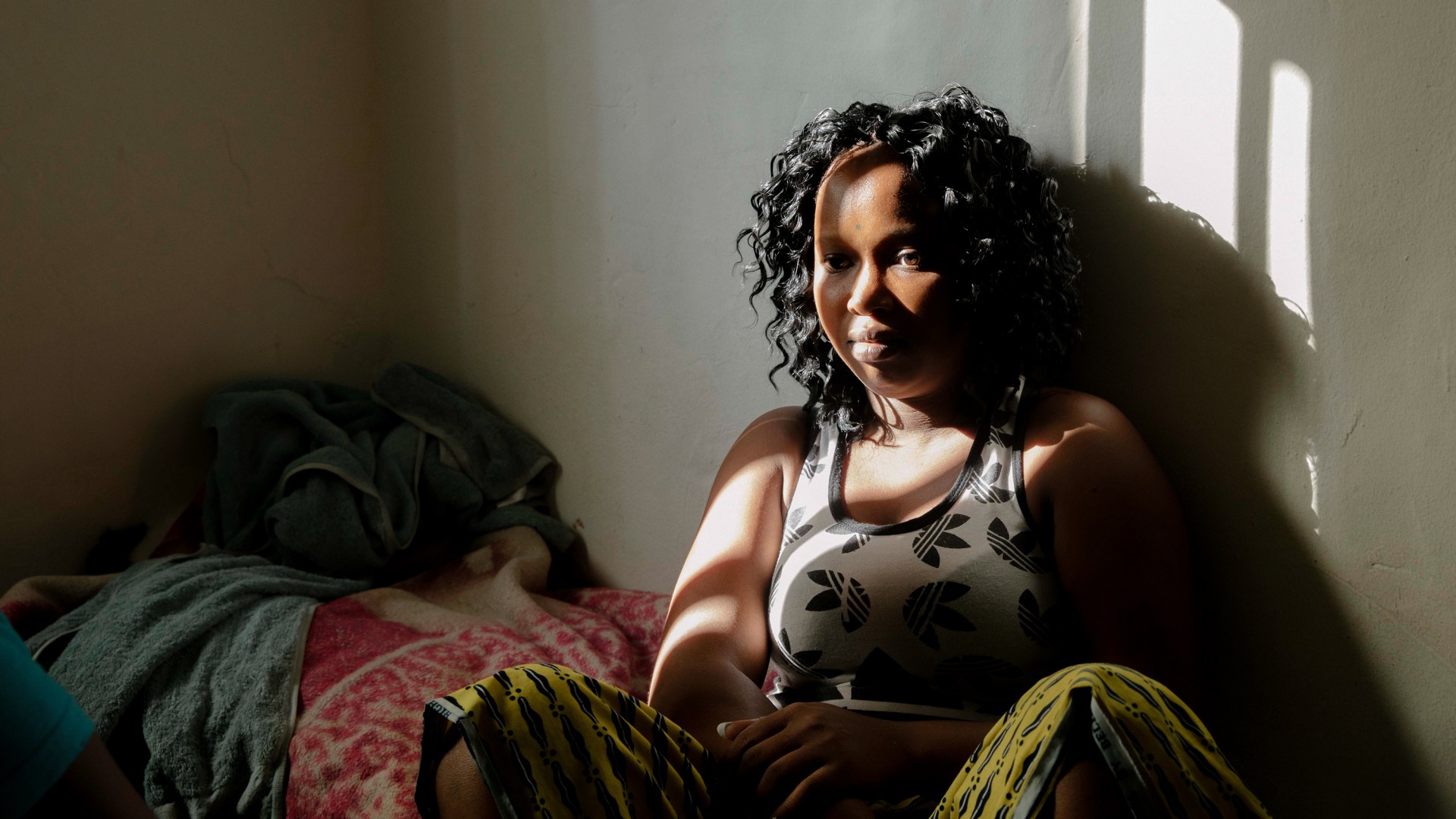Joyce Vincent had a job with a microfinance bank in Nigeria earning 150,000 naira (about $98 USD) monthly when her friend told her of a job offer in Egypt. When she heard the job paid over 1,000,000 million naira (about $654) monthly, Vincent jumped at the offer.
“Who wouldn’t?” she asked.
In the spring of 2019, Vincent sold everything she owned. After all, if she immigrated, she would have no need for her pots, pans, gas cooker, and television set. Vincent put the money toward her travel expenses and borrowed some money to make up the difference.
On May 27, 2019, she started the journey by air through Ethiopia to Sudan. Then, she said, “the deadly journey began by road.”
Nigeria is experiencing what locals call the japa syndrome—a slang Yoruba term describing the desire to leave the country in search of better opportunities. The country’s national minimum wage of only 70,000 naira (about $46 USD) monthly makes higher international salaries more attractive. But overseas jobs don’t always offer a better life; scammers and labor traffickers may trick Nigerians into menial jobs with false promises of good salaries.
According to the UN Office on Drugs and Crime (UNODC), Nigeria “remains a source, transit and destination country for human trafficking, with 65% of the cases happening internally and 35% externally.” The UNODC listed poverty and greed as driving forces behind trafficking.
Along the road to Egypt, Vincent saw unburied corpses. When she reached Egypt, Vincent said, her passport was taken away. Her employers told her she would have to work for three years to pay back the money used to transport her to Egypt.
Vincent offered to pay them back with what remained from her loan and the sale of her belongings, but her employers refused. They sent her to work as a housekeeper for a family Vincent described as “very wicked.” Unable to speak Arabic and lacking any connections in Egypt, Vincent had no choice but to comply.
“I was required to work almost 24 hours without any rest and with very little food,” she recalled.
When she realized she was being trafficked for labor, Vincent said, she started looking for a way to escape and return home. Without her passport or knowledge of the area, this took time. The family rarely allowed her to go out. After four months, Vincent found her way to the Nigerian Embassy in Egypt.
At first, Vincent said, embassy staff turned her away because it was a public holiday. With nowhere to go, Vincent returned to her traffickers. During that time, one of the couriers who had smuggled her into the country sexually assaulted her.
Two years after her arrival in Egypt, Vincent got help from the embassy to go home.
According to the US State Department, the Nigerian government initiated investigations of 698 trafficking cases in 2024, a decrease from 1,242 cases in 2023. Corruption and officials complicit in trafficking crimes remain a significant concern in Nigeria.
The UNODC reported that Nigeria detected the highest number of trafficking victims of any country in Africa—but also initiated the highest number of prosecutions. Nigeria’s National Agency for the Prohibition of Trafficking in Persons (NAPTIP) claims to have rescued 24,000 trafficking survivors.
According to the UNODC, an increasing number of North and West African migrants are being smuggled from Africa to Europe annually, especially across the central Mediterranean. But the number of Nigerians trafficked through this route has decreased.
Jeremiah Adelu—the director of Voice of Migrant Association and also a trafficking survivor—said the government needs to do more to spread awareness about the dangers of irregular migration.
Adelu had set up a dry-cleaning business after graduating from school and failing to find a job. He was trafficked by a customer who always gave him generous tips.
“He asked how much I earn, and when I told him, he said he could help me migrate to Germany, where I could earn a higher income,” Adelu said. “The only catch is he said I had to pay 300,000 naira to help facilitate the journey.”
Like Vincent, Adelu sold off all his valuables to raise the money. Adelu began the journey to Germany but, unlike Vincent, did not have the luxury of traveling by air. His courier directed him through a land route that included crossing the desert to Libya.
Adelu recalled “seeing people dead, like skulls, like people just dropped dead” along the way and getting so thirsty that “the only option we had was to drink a urine. Somebody had to urinate for you to drink, because [of] the way the desert was very hot. Your throat gets dry easily.”
When he arrived in Libya, human smugglers took him to a place called Ali Ghetto,where they told him to pay a ransom of 3,000 Libyan dinar (about $555 USD). Because he did not have any money left, they asked him to call a family member who could raise the money.
“You are given 59 seconds to call who you want to call,” he said. “After the 59 seconds, they start flogging you.”
Adelu called his sister, who raised the money after three days.
After he was freed, Adelu decided to proceed to Germany across the Mediterranean Sea. He gave up after he lost some friends who died attempting to make the dangerous crossing.
Now back in Nigeria, Adelu runs Voice of Migrant Association, where he works with trafficked victims who have returned to Nigeria. Adelu also raises awareness about the dangers of irregular migration.
While acknowledging NAPTIP’s work to raise awareness about human trafficking—which includes creating policies and running ads on the radio, television, and social media—Adelu told CT it’s not enough. He said the message needs to reach the more vulnerable people in rural areas who may never see a NAPTIP campaign.
“When the traffickers come, they don’t stay in the city anymore,” Adelu explained. “They go to the rural environment where campaigns are not going on, education is not going on, their town hall is not going on. They don’t even know anything about trafficking.”
Adelu also said churches can use their influence with congregants more wisely.
“Because when a minister or a pastor tells a member, ‘I see your destiny is not in Nigeria. Your destiny is in UK; Your destiny is in Canada,’ that member will try to relocate by every means possible,” he said. This can make church members more vulnerable to human traffickers and scammers.
While many anti-trafficking initiatives in Nigeria are secular, some faith-based organizations do exist. One Lutheran-affiliated organization, Symbols of Hope, has run outreach initiatives to schools, churches, and traditional rulers in northeast Nigeria to warn of the dangers of illegal or irregular migration. Some Catholic nuns have also run awareness campaigns or set up recovery homes for survivors.
Reflecting on her experience, Vincent agreed that churches in Nigeria can do better, especially when helping survivors get their lives back together. She said she’s been disappointed by the lack of local support.
Vincent still struggles to make ends meet but said, “My help will come from God, not man.”












